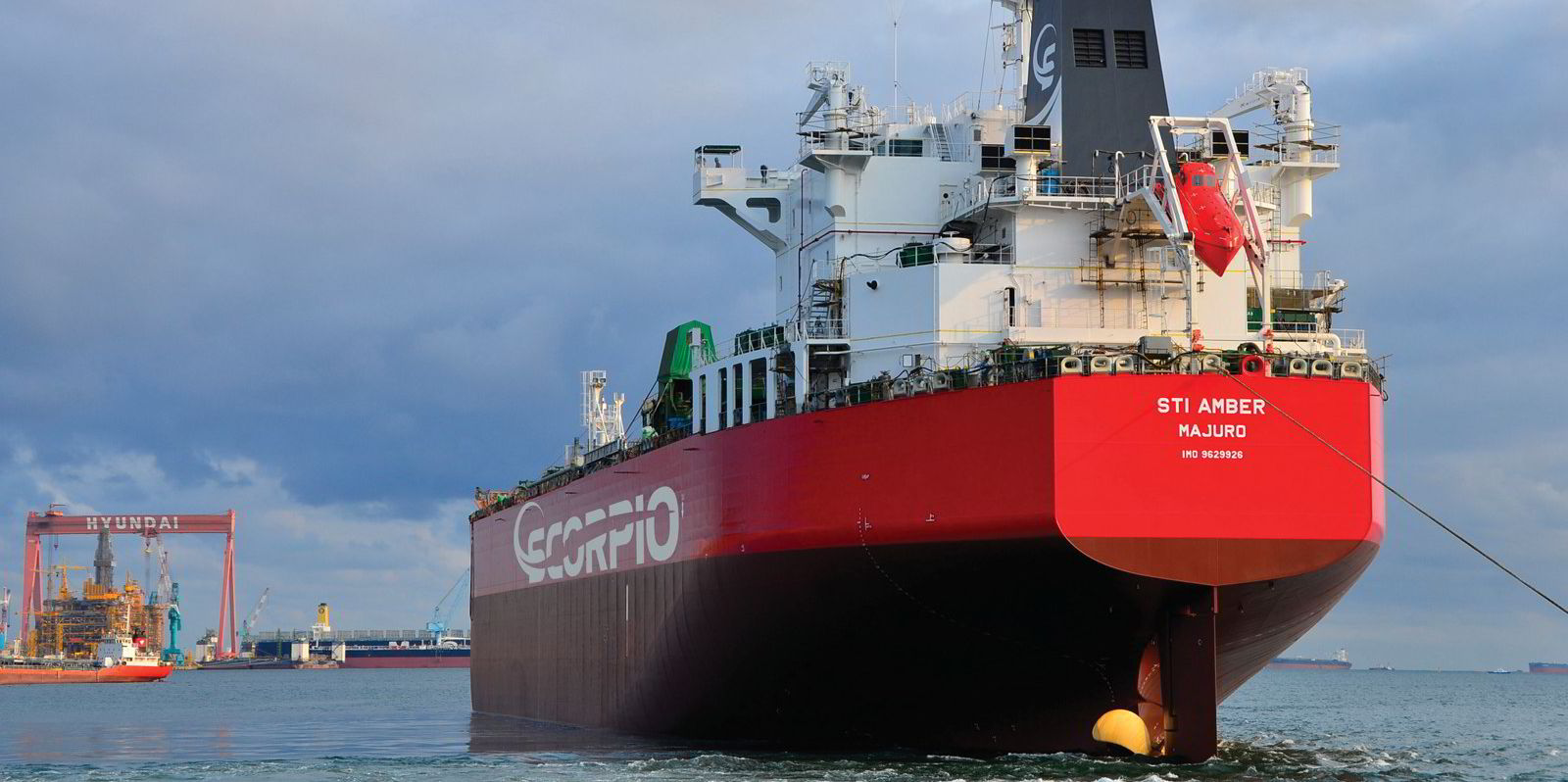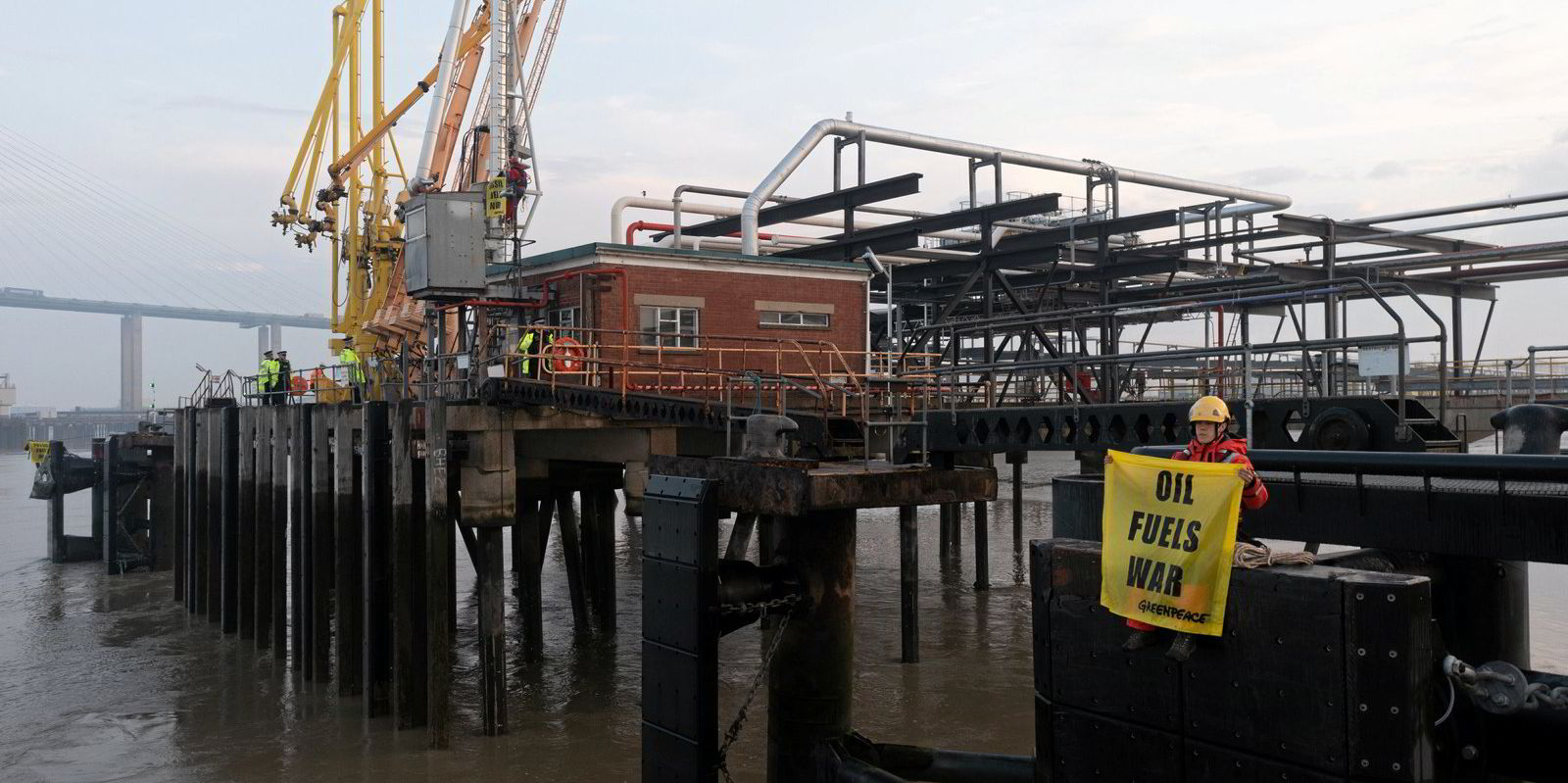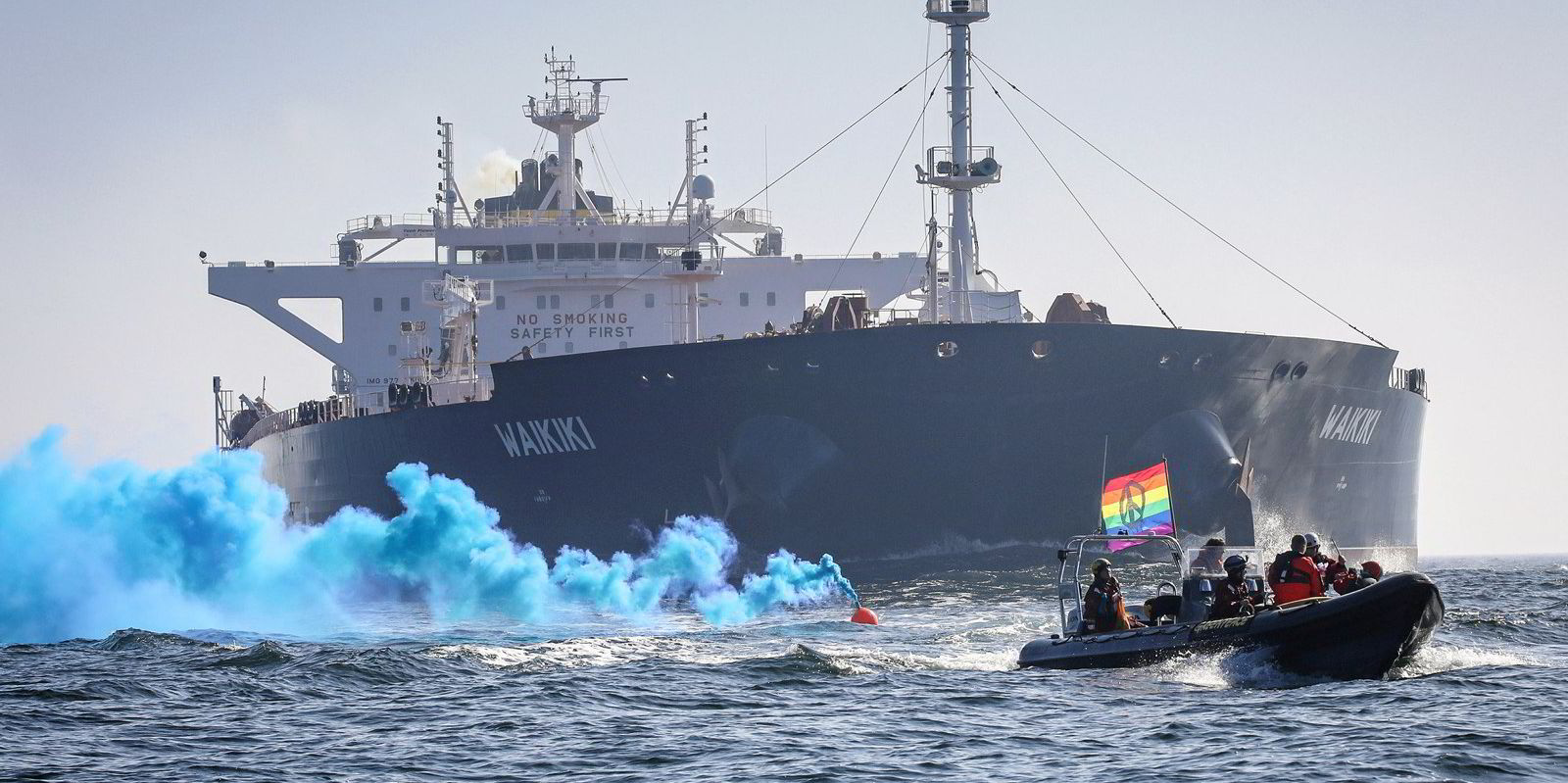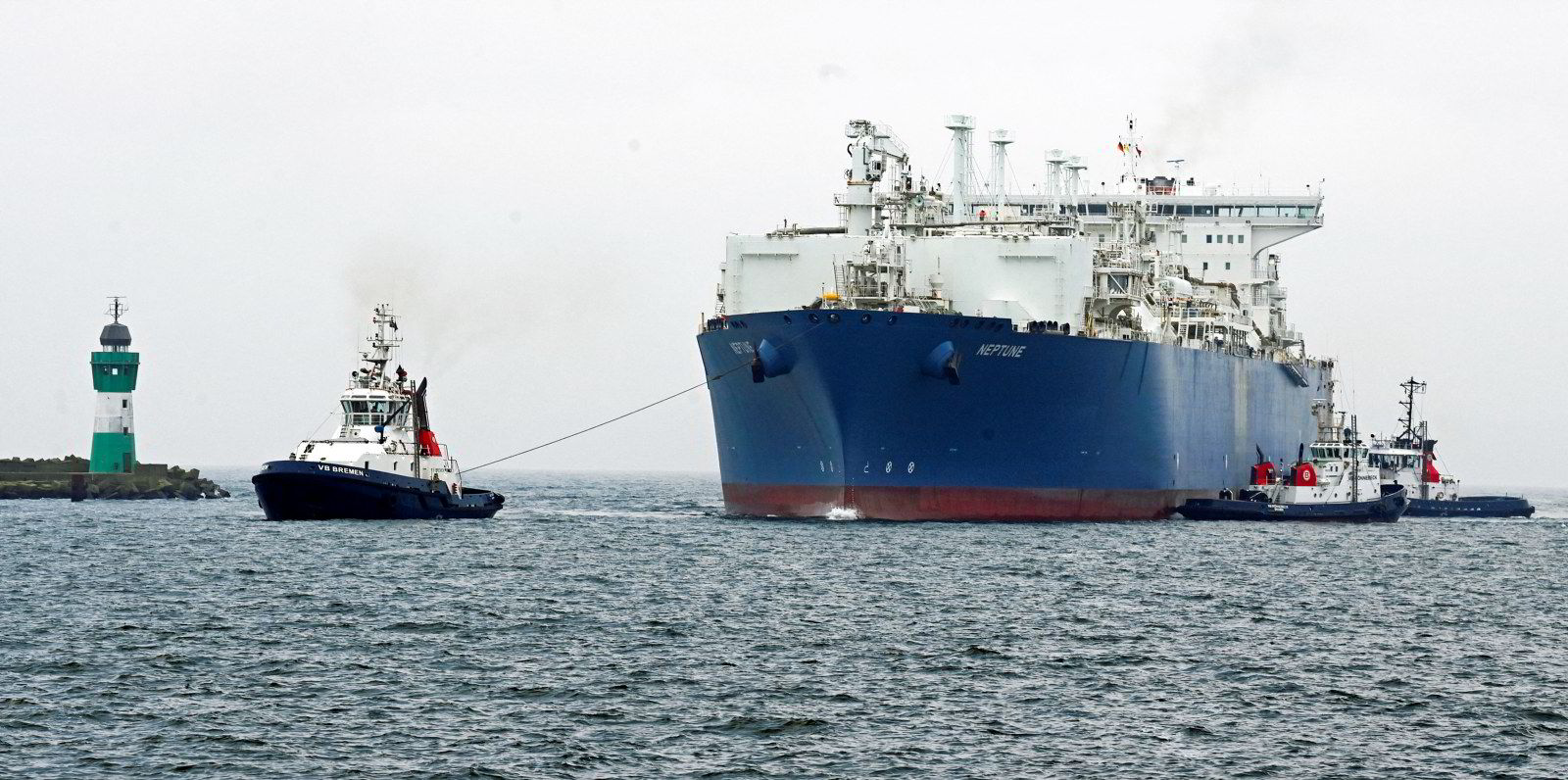Positive weeks for the tanker and dry bulk sectors have topped off “a banner year for shipping”, according to analysts Clarksons Securities and Clarksons Research.
A strong week for the tanker market saw crude carrier earnings remain at firm levels with average aframax spot earnings still over $100,000 per day, Clarksons Research said.
Clean product MR tanker earnings dropped back 15% week-on-week but remain exceptionally strong historically at $48,877 per day, it added.
Tanker market strength is reflected in the stock markets where average shipping share prices are up 29% year to date, according to Clarksons Securities, compared with an 18% loss so far this year on the S&P 500 Index.
The surge was led by product tankers with gains of 341% year to date which meant 2022 was the best year on record for tanker equities. Product tanker stocks surged by 232% and 157% in the prior boom years of 2003 and 2004.
Europe's ban on Russian oil product imports is still largely to take effect, Clarksons Securities said, suggesting there could be plenty more upside potential in 2023 as oil demand is forecast to rise and production decline.
Dividends are providing a major boost to shipping stocks, with an average yield of 15-20% for tankers predicted for 2023, it added.
The car carrier and chemical tanker sectors have also seen impressive growth, with average price increases of 138% and 136%, respectively.
The crude tanker and LPG sectors have not been left behind either, with average price increases of 127% and 93%.
Dry bulk is also rebounding, according to Clarksons Research.
Capesize spot earnings made a significant 30% increase in the past week, with rates reaching above $18,000 per day largely attributed to a tonnage shortage, or a positional squeeze in the Atlantic on available ships.
Rising iron ore prices also suggest there is improved demand for materials, potentially driven by expectations of a recovery in the Chinese steel market as the Covid-19 epidemic subsides.
“While there may be some seasonal pressure on rates in the first quarter of 2023, slowing fleet growth and relatively low valuations may support the performance of dry bulk equities in this market,” Clarksons Securities said.
China is expected to make a significant recovery next year, which should benefit the shipping industry in general and potentially offset negative economic activity elsewhere, it added.
However, not all sectors are feeling the love. The container ship sector has had a disappointing average stock price decrease of 32% and LNG shipping is declining.
Tri-fuel diesel electric (TFDE) vessel spot earnings for LNG carriers fell by 15% last week to around $170,000 per day with the number of ships in European ports down from a peak of 40 vessels in late October to 27 now – though that is above the pre-2022 average of around 11 vessels.
Commissioning of two FSRUs in Germany is expected to increase Europe's LNG intake capacity, which could put downward pressure on rates due to reduced ton-mile and lower risk over the European gas balance, Clarksons said.
“The FFA market is still pricing in healthy TFDE carrier rates of $100,000 per day in the first quarter of 2023 and $118,000 per day for the full year.”








